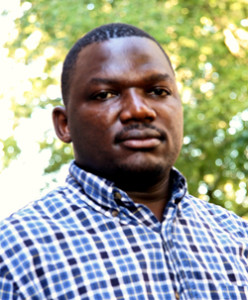
Until the advent of Structural Adjustment, the Uganda government provided quality and equitable universal health care and tertiary education. Under the liberal market milieu, both sectors are on a steady decline.
Health care and education are critical aspects of the economy because they shape the human capital for economic development. A healthy and educated population is the engine of economically growth, and determines whether Uganda will become middle-income country.
However, under the liberal market environment, the government has retracted from its core obligation to universal health provision. Its budgetary allocation is less than half the 2001 Abuja declaration were Uganda committed to allocate 15% of its budget towards improving the health sector.
Recently increase in health allocation from UGX 1.270 Trillion in the FY2015/16 to UGX 1.853 trillion in FY2016/17 still leaves a glaring gap in healthcare financing. The 2016/17health budget is far below the amount needed for Uganda to sustain high quality human resource and meet its health sector obligations.
The Civil Society Budgetary Advocacy Group ascertained that the current budget still leaves 72% of the health sector-financing budget in the hands of the donor given the slow private sector investment in healthcare.
Proposals to bridge the sector financing gap with health insurance have surfaced without much public debate. However, the proposal by Dr. Francis Runumi, the Commissioner, and Director in the Health Ministry needed further public debate. Dr Runumi has single handedly shaped the debate on health insurance, thereby shifting the obligation for health financing from public to private – in the murky market economy.
Dr Runumi proposed the Social Health Insurance (SHI) common in low and middle-income countries. The assumptions underscoring SHI are that the affluent would subsidise healthcare costs for the poor; the single wealthy subsidises for families, and the young subsidies for the old.
From the onset, this proposal is problematic, because of the intricate complexities of health insurance buying in an “open-palm” society like Uganda. A 2010 peer reviewed study by Juliet Nabyonga Orem and Charlotte Muheki Zikusooka questioned the equity factor in such a health insurance, concluding that in the short term, it would achieve the important equity characteristics of pooling, cross-subsidisation, and financial protection. However, they cautioned that this achievement would rely on the market forces that influence accredited Insurers. The study was quick to observe that the current method of disbursement would in the long term, escalate the disparities in healthcare access among the population.
The challenge of health insurance in Uganda is rooted in the characteristic of the labour market and human resources. Uganda, with an estimated population of 39 million, 19.5% are living below the poverty line with 72% of Ugandans financially excluded (FINCA Observation). Uganda also has a workforce estimated to be 15% of its population, whereas less than 2 million people are actually employed formally, with reliable incomes. Many Ugandans are employed in small private businesses and subsistence farming. Given that health insurance is better serviced within an economy that emphasises full employment, the challenge of adopting the most appropriate National Health Insurance is daunting.
Debate should focus on the Private Health Insurance (PHI) for the affluent segment of society and the Community Based Health Insurance (CBHI), popular among the poor. A 2012 Systematic review of health insurance in Africa and Asia by Ernst Spaan and colleagues that was published in WHO Bulletin, highly appraised the CBHI as the option that improved resource mobilisation, health utilisation, reduced out-of-pocket expenditures, and increased community empowerment. However, CBHIs tended to exhibit weak financial sustainability due to low renewal rates, high claim-to-revenue ratio, and high operational costs (Spaan et al., 2012).
In sum, with 90% youth unemployment, widespread economic inequality, and low financial inclusion within an inelastic market economy, any NHI modeled after any industrial countries’ will create more disparity in healthcare access. At least, Uganda should avoid the USA’s highly inequitable and predatory health insurance model. Next, we examine CBHI and policy implications.
Mr. Komakech does Health Policy and Equity Analysis. Can contact via mordust_26@yahoo.ca

